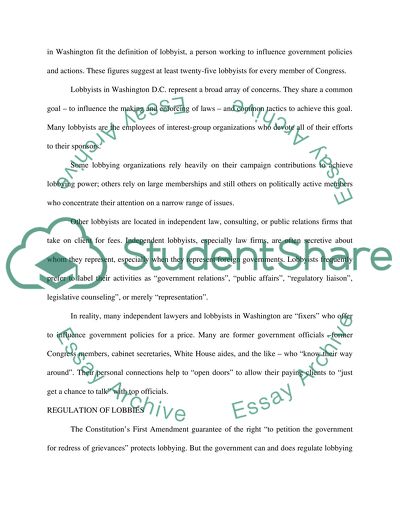Cite this document
(“Lobbyists Book Report/Review Example | Topics and Well Written Essays - 1500 words”, n.d.)
Lobbyists Book Report/Review Example | Topics and Well Written Essays - 1500 words. Retrieved from https://studentshare.org/miscellaneous/1526681-lobbyists
Lobbyists Book Report/Review Example | Topics and Well Written Essays - 1500 words. Retrieved from https://studentshare.org/miscellaneous/1526681-lobbyists
(Lobbyists Book Report/Review Example | Topics and Well Written Essays - 1500 Words)
Lobbyists Book Report/Review Example | Topics and Well Written Essays - 1500 Words. https://studentshare.org/miscellaneous/1526681-lobbyists.
Lobbyists Book Report/Review Example | Topics and Well Written Essays - 1500 Words. https://studentshare.org/miscellaneous/1526681-lobbyists.
“Lobbyists Book Report/Review Example | Topics and Well Written Essays - 1500 Words”, n.d. https://studentshare.org/miscellaneous/1526681-lobbyists.


